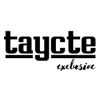Constellation Brands continues to be weighed down by its big bet on cannabis.
Last year, Constellation expanded its investment in Canopy Growth to 38%, spending about $4 billion on the world's largest publicly traded cannabis company.
So far, it seems Constellation's high expectations for the trendy company haven't been met.
The maker of Modelo and Corona reported Q2 earnings last week that exceeded analysts' expectations, but the company disclosed a loss of $484.4 million on its Canopy Growth investment. Although executives remain upbeat about the cannabis company's potential, they acknowledged in the earnings call that its losses could continue.
"Canopy's business is rapidly evolving, and their financial results will likely be volatile as they continue to focus on their path to profitability," Constellation's Chief Financial Officer David Klein said on the call.
During the quarter, the alcohol giant wrote down $839 million on the value of its Canopy investment. Constellation still says its net gain on its initial investment is $757 million, but the company did not give any guidance around the impact of Canopy's equity earnings.
"Canopy's business is rapidly evolving, and their financial results will likely be volatile as they continue to focus on their path to profitability."

David Klein
Chief financial officer, Constellation
Analysts told Food Dive they remain positive about Constellation overall. Although its Canopy investment could continue to be a buzzkill to earnings in upcoming quarters, ultimately it could be a smart bet in the long term — even though there is a lot of unpredictability and risk around it.
'Several layers of uncertainty'
Investors have been closely eyeing Constellation and Canopy Growth since last quarter. In June, Canopy posted a wider-than-expected loss, which was estimated to take millions out of Constellation’s own earnings.
"While we remain happy with our investment in the cannabis space and its long-term potential, we were not pleased with Canopy's recent reported year end results. However, we continue to aggressively support Canopy on a more focused long-term strategy to win markets and form factors that matter while paving a clear path to profitability," Constellation CEO Bill Newlands said in an earnings call in June.
That performance resulted in an executive shake up at Canopy. Bruce Linton, the cannabis company's founder and co-CEO, was fired in July.
On the earnings call last week, Newlands was more optimistic about the company. He told analysts he was "pleased with the progress of the Canopy team and what they have done in the last few months."
Bonnie Herzog, an analyst at Wells Fargo, said in a note emailed to Food Dive that Constellation did not address or reaffirm its expectations for Canopy Growth on either revenue or profitability. Herzog said Constellation leadership has wisely withheld a target for profitability, but she is "cautiously optimistic" the target will be fiscal year 2022.
"In terms of [Canopy Growth], we aren't surprised that management refrained from guiding when it expects Canopy profits to inflect positive," she said. "A string of earnings misses, recent change in Canopy leadership and a late (mid-Dec) rollout of derivative products in Canada, adds several layers of uncertainty."
Canada will allow some cannabis-infused products, including edibles and beverages, to be sold in stores in December. In the earnings call, Constellation said it was looking forward to December when Canopy plans to debut a portfolio of higher margin products, including beverages, edibles and vaping products.
Andrew Kessner, an equity research analyst at William O'Neil + Co., said there are many uncertainties in investing in this space since so much hinges on regulatory developments. Cannabis stocks will continue to be a volatile group since the industry still has so much perceived risk, he said.
"The jury is still out on whether that was a good move for Constellation."

Andrew Kessner
Equity research analyst, William O'Neil + Co.
He told Food Dive it was a good move for Canopy to take Constellation's investment, but "the jury is still out on whether that was a good move for Constellation." However, Kessner said most people would agree the exposure to the cannabis market is a smart move for beverage companies, and if they haven’t done it yet, many of them are talking about it in their board room.
"There is still some big question marks around what Constellation plans to do with Canopy," Kessner said. "They may only own less than half of the stock right now, but they basically have the right to take a majority stake if they want to. They basically control the board of directors, so effectively they can steer the company in whatever direction they want to."
Kessner said it will be interesting to see who becomes Canopy's new CEO since it will likely be someone with experience leading a high growth company. He added that a lot of people will also be waiting to hear more about Canopy's strategy in the U.S. with CBD, and the company's expansion strategy for the next few years as more clarity comes to the marketplace.
Struggle now to potentially thrive later
Analysts largely agreed Constellation knew Canopy wouldn't immediately be a boon to earnings. As beer volume overall has seen a decline, it made sense for Constellation to look for a new growth area. But Constellation seemed to have underestimated how long it would take this emerging market to grow.
"They knew that it might be a drag on the whole company's profitability for the first couple of years, but I think what changed since then, it is sort of clear that it is going to take a good amount longer than that for Canopy to potentially become profitable and to really add to Constellation's profitability," Kessner said. "It is looking more like a three-to- five-year horizon now, rather than the one to two years that was initially expected."
Edward Lewis, an equity analyst at Atlantic Equities, told Food Dive that Constellation's investment in cannabis was a strategic move. He said he isn't looking too much at Canopy's results when analyzing Constellation now because it's more of a bet that could pay off big later down the line.
"They've essentially got control of the company that arguably has as good a shot as any as emerging as a dominant player in a North American cannabis market," Lewis said. "Now, when is that going to emerge? Is it going to emerge tomorrow? No. Is it going to emerge next year? No. But in five to 10 years down the line it could, and that is what Constellation in my view has bought, rather than necessarily a reason to get its Q2 earnings better."
Lewis said although the investment likely frustrated some investors, people trading Constellation because of Canopy, may be acting prematurely. He said Canopy's performance during the last 12 months has possibly knocked some people's confidence about the investment, but that could shift in six months or more as the market in the U.S. and Canada changes.
Many big food and beverage companies still view cannabis as a risky investment because of complicated regulations in the United States. Although the U.S. Food and Drug Administration held a public hearing on the substance this summer, experts say that it could still be years before the agency develops a legal path to market for food and beverage products with cannabis.
"I don't have a crystal ball into when that is going to happen, but if it does happen, I think that Constellation is well positioned," Lewis said. "If I'm AB InBev or Molson Coors, I'm in a position whereby I'm going to have to probably scramble to get something together."
In the U.S., Canopy is developing a range of CBD products — including cosmetics, creams, beverages and edibles — and related marketing plans. It's also working to secure the production resources to bring these products to market by the end of Constellation's fiscal year in March, Newlands said during last week's earnings call.

For now, Constellation seems to be using the rest of its portfolio to balance out its cannabis investment. In Constellation's most recent quarterly earnings, the company's sales were $2.34 billion, with beer sales up 7.4% from the year before. Although wine and spirits sales declined by 9%, Constellation expects to soon close on its $1.7 billion sale of 30 lower-end wine and spirits brands and six U.S. winemaking facilities to E & J Gallo Winery.
Analysts were mostly positive about the company's earnings overall. JP Morgan analysts Andrea Teixeira, Peter Grom and Christina Brathwaite wrote in a note emailed to Food Dive Constellation is still one of the fastest growing large beverage companies in the U.S., due to its diversified portfolio across beer, wine and spirits.
"Although the outlook points to less [earnings per share] growth than in years past due to the [earnings per share] dilution from the cannabis transaction, we view the company's long-term revenue growth targets for its core beer segment as achievable," they wrote.























